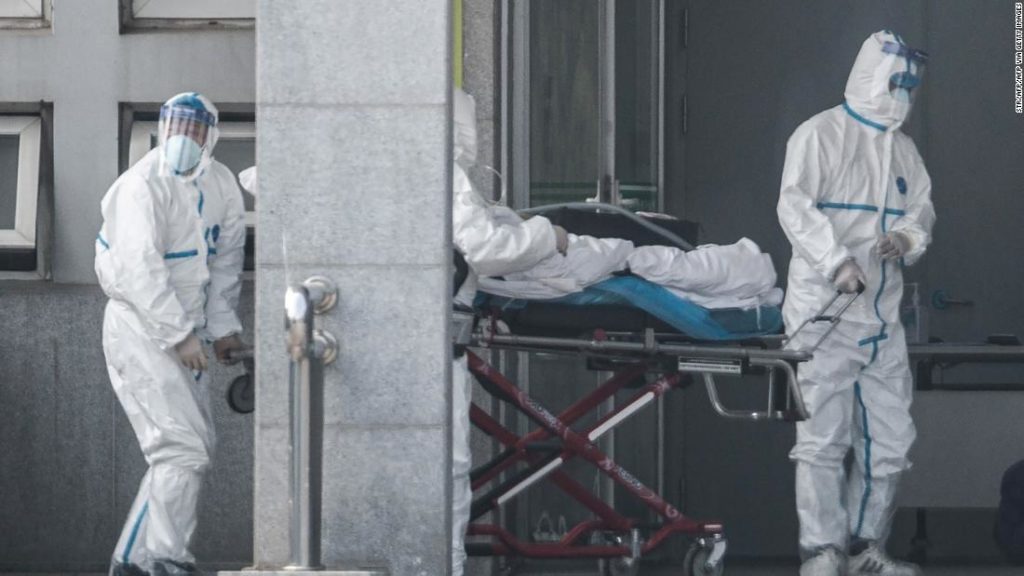The findings indicate that even people who recover from Covid-19 could suffer long-lasting health impacts from their bout with the coronavirus, which has infected more than 90 million people worldwide.
The study, the largest of its kind yet carried out, published Friday in the medical journal The Lancet. It found that fatigue and sleep difficulties were the most common post Covid-19 symptoms, occurring in 63% and 26% of the patients, respectively, six months after the onset of their initial diagnosis.
The disease could also have long-lasting psychological complications, with anxiety or depression reported among 23% of the patients, the study found.
Patients who were more severely ill tended to have continued evidence of lung damage on X-rays, according to the researchers.
“Because Covid-19 is such a new disease, we are only beginning to understand some of its long-term effects on patients’ health,” Dr. Bin Cao of the China-Japan Friendship Hospital and Capital Medical University, who led the study team, said in a statement.
“Our analysis indicates that most patients continue to live with at least some of the effects of the virus after leaving hospital, and highlights a need for post-discharge care, particularly for those who experience severe infections. Our work also underscores the importance of conducting longer follow-up studies in larger populations in order to understand the full spectrum of effects that Covid-19 can have on people,” the statement said.
Covid-19’s long-term health effects
Scientists around the world are studying the long-lasting effects of the virus, commonly referred to as “long Covid” symptoms.
“While most persons with Covid-19 recover and return to normal health, some patients can have symptoms that can last for weeks or even months after recovery from acute illness. Even people who are not hospitalized and who have mild illness can experience persistent or late symptoms,” the US CDC says.
But the Chinese study is the largest, with the longest follow-up duration, to investigate the long-term impact on discharged patients, according to its authors.
The patients of the study, with a median age of 57, were all discharged between January 7 and May 29, 2020, from Wuhan’s Jinyintan Hospital, a designated Covid-19 facility that treated the world’s first known people to contract the disease from December 2019.
In total, the study included 70% of all discharged Covid-19 patients in that period, after excluding those who died, who were unable to participate due to severe mental or physical conditions, and who declined to participate.
All participants were interviewed with a series of questionnaires for evaluation of symptoms. They also underwent physical examinations, a six-minute walking test and blood tests, the study said.
Unexpectedly, 13% of patients who did not appear to have acute kidney injury while hospitalized exhibited signs of kidney malfunction.
However, the findings on fatigue, sleep difficulties, and anxiety or depression fit in with previous research following patients who had a related coronavirus that caused severe acute respiratory syndrome (SARS) in 2003 and 2004, according to the Chinese researchers.
A follow-up study of SARS survivors showed 40% of patients had chronic fatigue symptoms more than three years after infection, the researchers said.
Another study showed that 38% of SARS survivors had evidence of lung damage 15 years later, the researchers at the Institute of Pharmacological Research noted in their commentary.
Growing coronavirus outbreak
China largely contained the initial coronavirus epidemic in Wuhan in March, and has been able to swiftly curb sporadic local outbreaks in its territory since then.
But it is now facing the country’s worst coronavirus flare-up in months in the northern province of Hebei, which surrounds the capital Beijing, just weeks before the Lunar New Year festival — the most important time for family reunion in China.
Shijiazhuang, the provincial capital and epicenter of the ongoing outbreak, was placed under a strict lockdown last week. Residents have been barred from leaving the city, as major highways were blocked, train and bus stations closed and flights canceled.
On Sunday, Hebei province detected 82 locally transmitted Covid-19 cases, with 77 reported in Shijiazhuang and five in Xingtai, according to China’s National Health Commission.
You may also like
-
Afghanistan: Civilian casualties hit record high amid US withdrawal, UN says
-
How Taiwan is trying to defend against a cyber ‘World War III’
-
Pandemic travel news this week: Quarantine escapes and airplane disguises
-
Why would anyone trust Brexit Britain again?
-
Black fungus: A second crisis is killing survivors of India’s worst Covid wave

